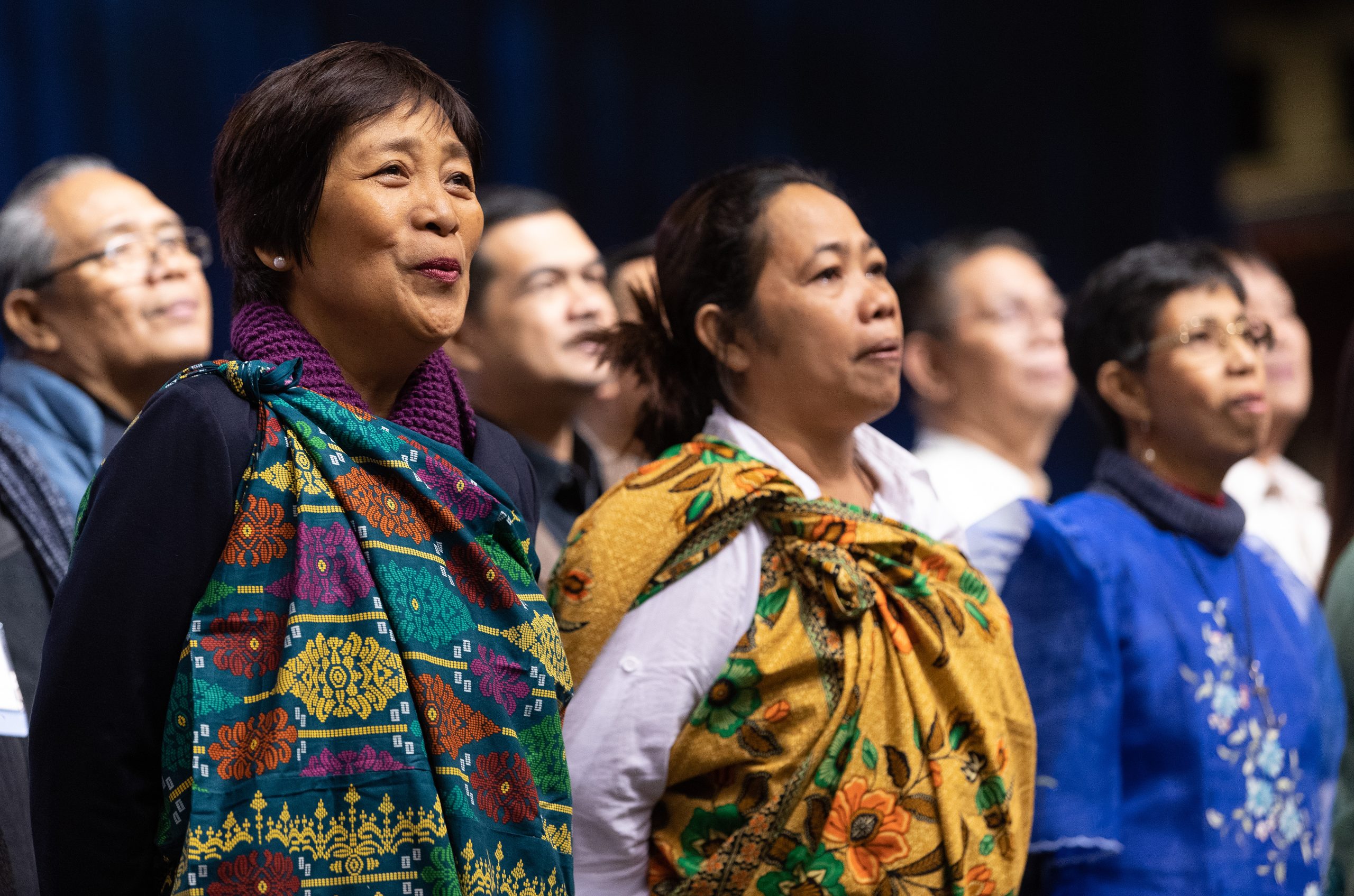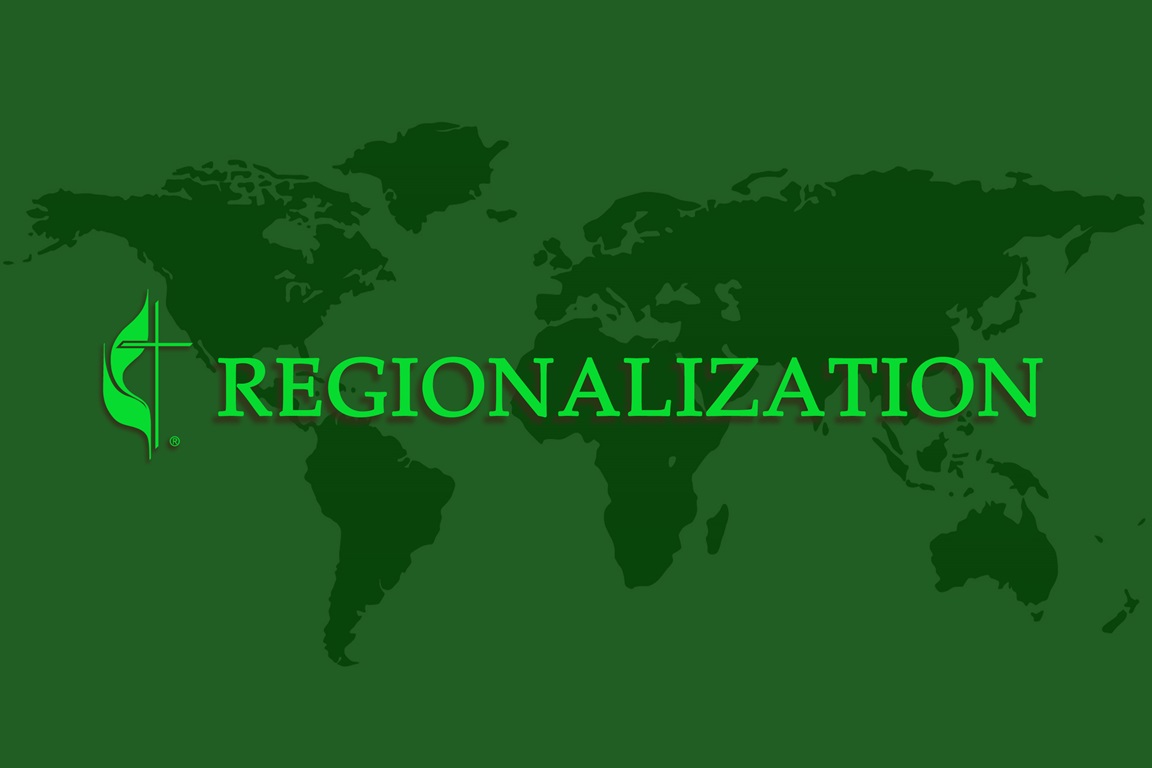
General Conference
Supporting Regionalization
Why does United Women in Faith support regionalization? Because it’s the right thing to do.
by Tara Barnes
One of the biggest proposals facing delegates at the 2024 General Conference is worldwide regionalization, or moving the church toward a more globally mutual structure.
The United Methodist Church is in mission in 130 countries in the world and includes more than 12 million members worldwide worshipping and serving in more than 43,000 local churches. We relate to one another through a structure we call a connection. The Book of Discipline of The United Methodist Church describes our connection as a “vital web of interactive relationships” that equips ministry and helps United Methodists carry out shared mission in unity and strength.
Local churches are organized into districts, which organize into annual conferences, which organize into five jurisdictions in the United States and seven central conferences outside of the United States. The U.S. jurisdictions are currently organized into 53 annual conferences supervised by 39 bishops, and central conferences are organized into 75 annual conferences supervised by 20 bishops.
The United Methodist Church is at its best when it is connectional and local, when being part of the denomination harnesses the power of its millions of members and empowers ministry in different contexts. Regionalization can help us better achieve this.
How do we know? United Methodists in the central conferences are saying so.
What is regionalization?
The Christmas Covenant describes regionalization as “establishing regional equity in the structures of the church for missional effectiveness while sustaining connectional unity.”
Though the denomination aims to be connectional, we’re still a church with the United States at the center. At the same time, the United States is the only body in The United Methodist Church without regional autonomy, as the central—or non-U.S.—conferences are able to adapt The Book of Discipline of The United Methodist Church in ways the United States currently cannot.
Multiple petitions before delegates at General Conference aim to make the United States a central conference as well, establishing The United Methodist Church as a connection of regional conferences instead of U.S.-and-other. The Connectional Table has submitted “Creation of a U.S. Regional Conference,” and the Philippines Annual Conference Cavite has submitted the Christmas Covenant, written by United Methodists from central conferences. The Standing Committee on Central Conference Matters has since reconciled the two proposals into one compromise piece, part of a joint task force to create unified legislation.

Want to learn more? Ask The UMC has published a multipart series exploring regionalization and what it means for the denomination. You can find it on UMC.org.
Regionalization evens the playing field, so to speak, allowing for a unity based on diversity, not conformity.
Why should the church regionalize?
The United Women in Faith Board of Directors says the following on regionalization:
“The United Methodist Church must move out of a U.S.-centric, colonial mentality. … As a regional organization, United Women in Faith works to practice mutuality in mission, partnering with women worldwide who organize in ways that work best in their context; we support regionalization of the denomination as a step toward decentering the United States. Regionalization also unburdens General Conference from dealing with U.S.-only matters and allows the church to be better stewards of its resources by reducing the time and money needed for a General Conference.”
Part of the history with which we must reconcile is the colonialist roots of our worldwide church, roots on full display at the United Methodist General Conference, where a global delegation gathers for two long weeks to discuss mostly U.S. matters. It’s not only morally dubious—it’s expensive!
In turn, the United States is then the only region beholden to the full Book of Discipline, practices and policies in which are decided by a body that is more than 40 percent non-U.S.
Learn more about the United Methodist Church and colonialism
“What Is Colonialism” from the General Commission on Religion and Race
Dismantling racism panel discussion “Theological Roots of Racism and Colonialism”
“The Central Conferences and Current UMC Politics” from Global Ministries’ David Scott
Video: “De-colonizing the Church: True Regionalization for The UMC” from the Christmas Covenant group.
A diverse group of passionate people will never agree on everything. Beloved community is not without conflict—but it’s no secret that General Conference in recent years has not exactly been 11 days of beloved community. Regionalization creates more space for ministry in different contexts. We belong to a denomination that believes God’s call for our life must be discerned first through Scripture but also through reason, tradition, and experience. It’s time for the church to stop prioritizing the concerns of one group over others.
How would regionalization happen?
Regionalization would not (and could not) happen overnight. The General Conference first must pass a regionalization plan by a two-thirds margin. Because regionalization will alter the church’s constitution, those changes will then need to be ratified by two-thirds of all voting United Methodists at every annual conference around the world. If the cumulative tally supports regionalization—a result we may not know until 2026, an interim committee on organization begins to plan for the establishment and functioning of a U.S. regional conference.
General Conference is just the beginning.
A church focused on God’s love cannot fail, but it must change. Let’s move together toward the kin-dom. United Women in Faith, your voice, vision, leadership, perseverance, and hope is needed at this time.
Tara Barnes is director of denominational relations for United Women in Faith.
Don’t forget to sign up for our General Conference newsletter, published monthly in the leadup to the 2024 General Conference and more frequently once the meeting is underway.

